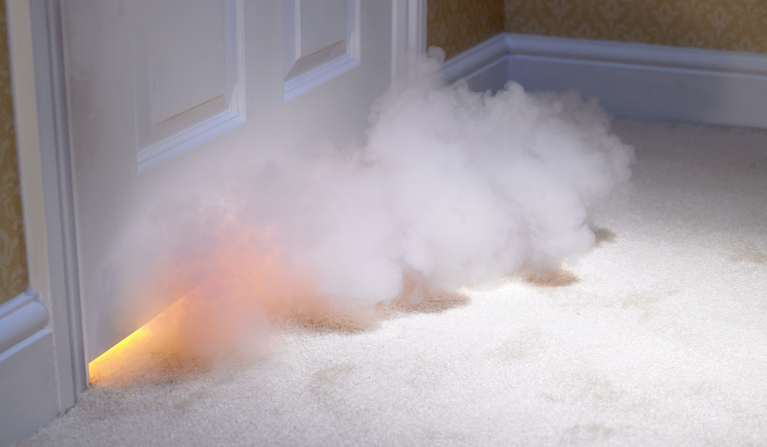We’ll never ask you to pay us a fee before disbursing your loan. If affected, please contact us & learn more here.
Late repayment can cause you serious money problems. For independent help, please go to www.moneyhelper.org.uk

Jan 31, 2020
In this latest article in Loans 2 Go’s occasional series “Domestic Disasters”, we are going to look at what to do if you have a fire in your home. We’ve all been horrified recently by the destruction caused by the huge bushfires in Australia. But, on a much smaller scale, would you know what to do if a fire broke out in your home?
Here are 7 simple steps to preventing and dealing with fire in your home:
First things first: be prepared. You need to fit smoke detectors into your home. Government regulations for private landlords are that there must be at least one smoke alarm installed on every floor of a rental property which is used as living accommodation. It therefore makes sense to do the same if you have your own home. You also need to test your smoke detectors regularly – ideally at least once a month – to make sure they are in full working order. If this is not the case then first try replacing the battery; but if that does not work you may need to replace the detector itself. Don’t delay doing this: it could save lives.
Different types of fire extinguishers are effective for different kinds of fire. There are three main types of domestic fire:
So when equipping your home with fire extinguishers you need to be aware of this, and take advice to ensure that the extinguisher(s) you buy are suitable for your needs. The most widely used type of fire extinguisher is a multipurpose dry chemical extinguisher rated for Class A, B, and C fires.
There are three things you need to do very quickly:
Don’t panic. As soon as you are in a place of safety, drop to the ground and roll onto your back to extinguish the flames. If you have any burns then get medical help as soon as possible.
Once everyone is out, you will start worrying about pets and possessions. On no account go back into a burning house. Nothing is worth losing your life for. Once the fire brigade arrive tell them if there is anything you specifically want them to look for.
Depending how much damage has been caused by the fire you may not be able to get back into your home for some time. In the immediate aftermath, most people will be offered help by family, friends and neighbours. Even though you will be in shock, and going through many different emotions, say yes to all the help that is offered to get you through those difficult first few days.
You also need to contact your home insurance company as soon as you can to see what kind of help they can offer. Buildings insurance should cover the cost of rebuilding the property, and should also cover the cost of temporary accommodation if you can no longer live in your home, or need to move out while repair work is done.
If there are other expenses you need to meet, either that are not covered by your insurance or will take a while to claim for, you may want to consider a small short term loan to tide you over. At Loans 2 Go we do a range of unsecured loans for any purpose, so have a look to see if we can be of help. You can apply online or call us on 0330 400 0403.
We hope that you never have to face the prospect of fire in your home. But it is best to be prepared for the worst, both in terms of equipping your home with smoke detectors and fire extinguishers, and knowing what to do if fire were to break out.
If you have missed any of our previous Domestic Disasters articles you can catch up here:
Check back here soon for more home and financial tips from Loans 2 Go.